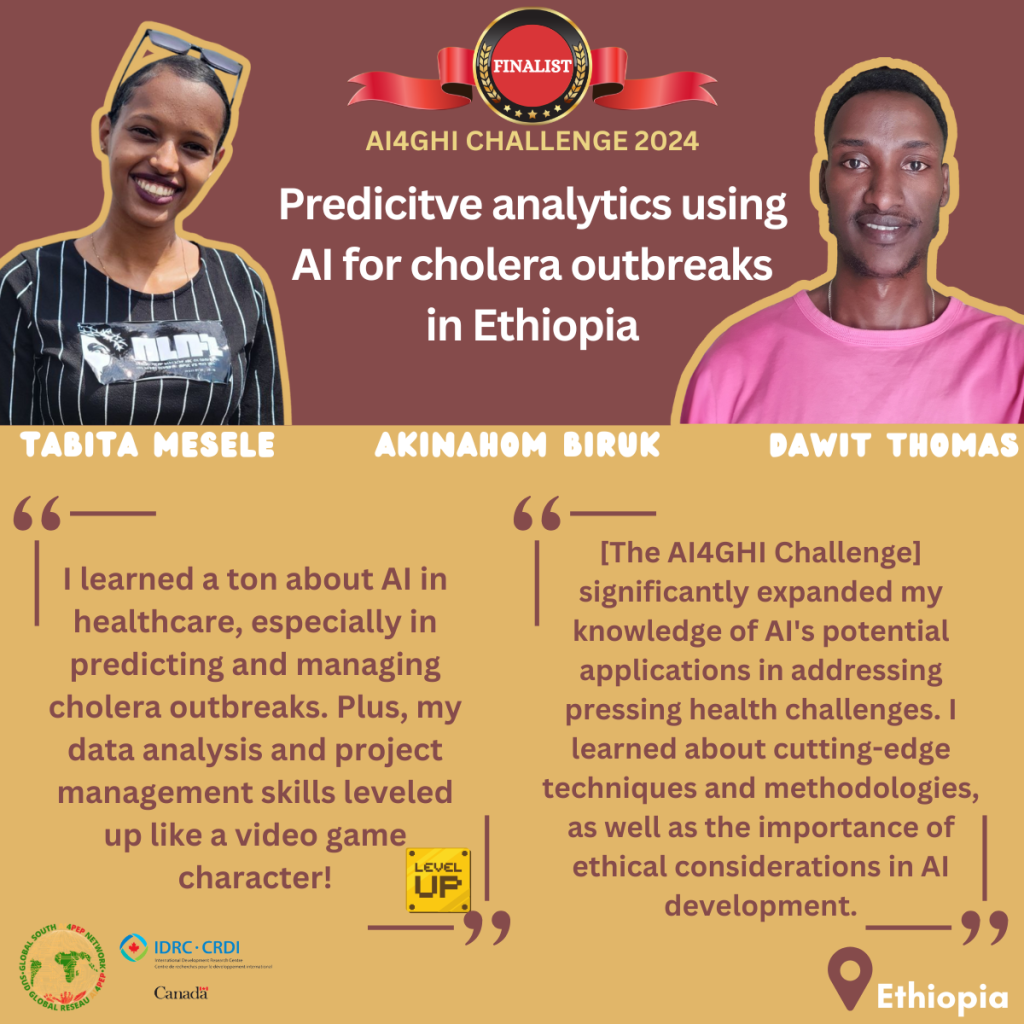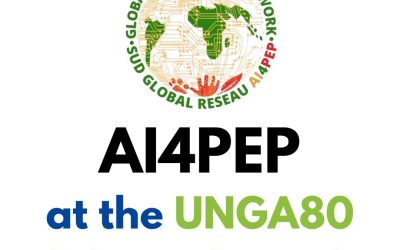Jimma University Students Pioneer AI for Cholera Outbreak Prediction In Ethiopia
By Mahak Kaur

Cholera remains a persistent public health challenge in Ethiopia, where millions of people live in areas vulnerable to recurrent outbreaks. On November 16, 2024, at the AI for Global Health Innovation (AI4GHI) Student Summit, Tabita Mesele and Dawit Thomas, both biomedical engineering students, and Akinahom Biruk, a computer science student, unveiled their project, Predictive Analytics Using AI for Cholera Outbreaks in Ethiopia. Their research combines artificial intelligence with local insights to forecast outbreaks and empower health authorities to act early.
Forecasting Outbreaks, Saving Lives
Despite improvements in healthcare access, cholera remains a persistent issue in Ethiopia. An estimated 15% of the population—15.9 million people—live in areas prone to outbreaks. Between 2015 and 2023, nearly 100,000 cases and over 1,000 deaths were reported. Open defecation, poor sanitation, and environmental degradation continue to exacerbate the crisis, while climate change compounds the risk.
The team’s project seeks to tackle these challenges head-on by harnessing machine learning to predict outbreaks before they occur. By collecting and analyzing data on past outbreaks, water quality, demographics, and environmental factors, the team built a predictive model using machine learning techniques like Random Forest and Neural Networks. Their model aims to empower local health authorities with timely, actionable insights, aligned with Ethiopia’s National Cholera Elimination Plan to eliminate transmission in hotspot areas by 2028.
Learning from the Process
Participating in the AI4GHI summit offered more than technical experience. Dawit reflected on the broader lessons learned: “I gained a deeper understanding of AI’s applications in global health, as well as project management and effective communication. It was a valuable learning experience.”
Tabita added, “I learned so much about AI in healthcare, especially in predicting and managing cholera outbreaks. My data analysis and project management skills improved significantly—like leveling up in a video game!”
The students also had ideas for enhancing future summits. Dawit suggested extending presentation times for a more detailed exploration of research findings and involving all team members in the Q&A sessions. Tabita proposed hands-on workshops on advanced AI techniques, describing them as “a bootcamp for AI ninjas.”
A Future Beyond the Summit
The team’s project aligns with Ethiopia’s National Cholera Elimination Plan (NCP), which aims to eliminate local transmission in hotspot areas by 2028. By combining AI-driven predictions with local knowledge, their work offers a scalable approach to cholera prevention that could benefit other regions facing similar challenges.
As Tabita expressed in her feedback to the organizers: “Thank you for creating a platform for young innovators to tackle real-world problems. The mentorship and collaborative environment were fantastic, and I’m excited to stay involved with the AI4PEP Network.”
Dawit echoed this enthusiasm: “This competition ignited my passion for AI research and inspired me to pursue further advancements in this field.”
Innovation in Action
As Ethiopia works toward eliminating cholera outbreaks, the Jimma University team’s project highlights the potential of AI to transform public health responses. By leveraging predictive analytics, they have demonstrated a new approach to managing health crises in resource-constrained settings—one that could inspire similar innovations across the Global South.
For more on the team’s project, read their abstract: https://drive.google.com/file/d/1y5FEcAE7LiKoYNUXb_fhX9SroxrKSYai/view
Watch their research video: https://www.youtube.com/watch?v=0zi2MP-Q5XU
Learn more about the amazing work from all our finalists: https://ai4pep.org/ai4ghi-finalists/


